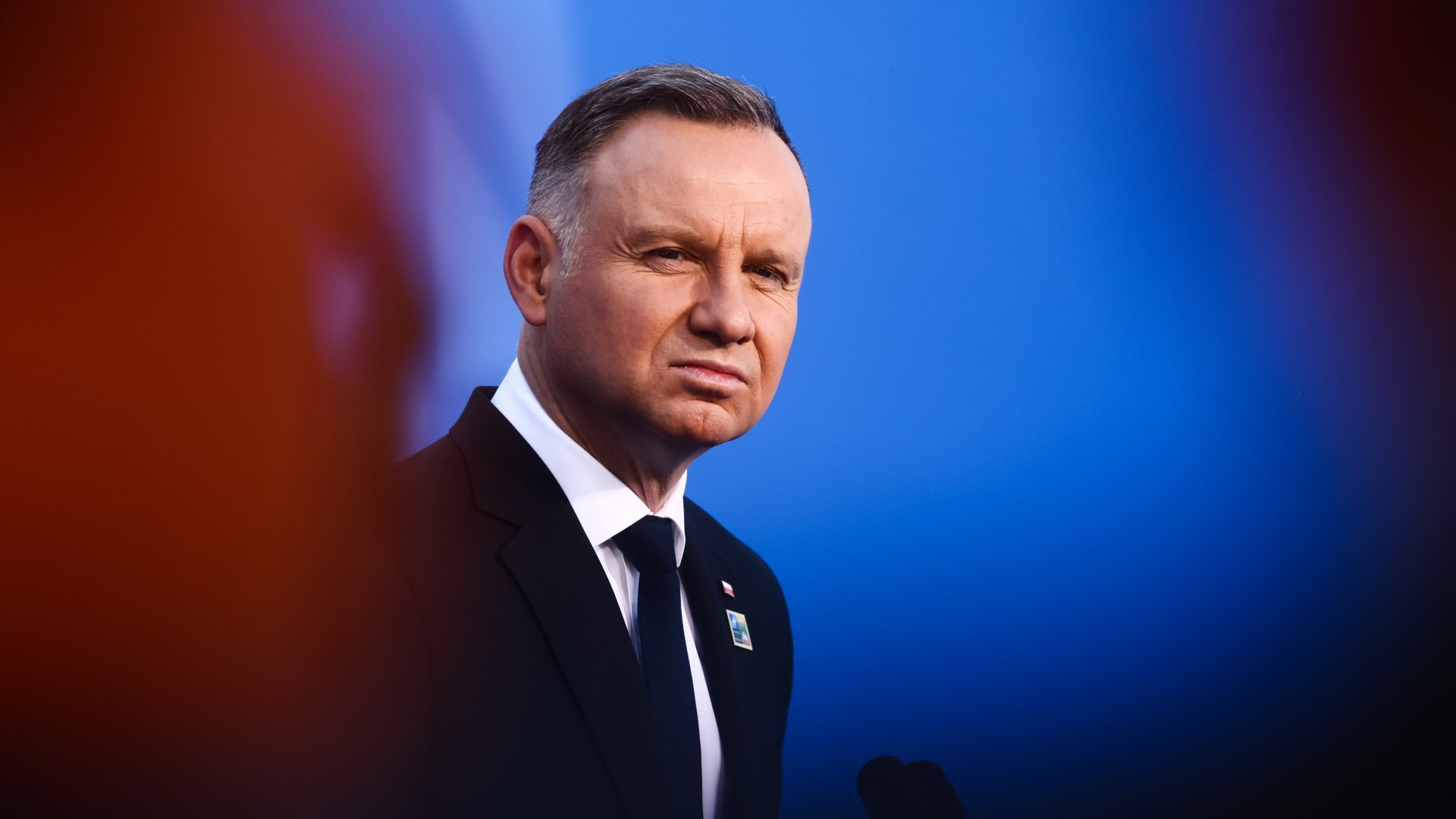“You’ve just called me a pig,” says Hanna Paczkowkso, referring to Poland’s president, Andrzej Duda. Upset at the release of The Green Border, a drama about refugees stuck on the Polish-Belarussian border, Duda said “only pigs sit at the cinema”. It was meant as a reference to the second world war, and to the Poles gullible enough to swallow Nazi propaganda.
When even the president is throwing insults like this, you know your political climate has become severely polarised. How bad is it? The only comparison I can draw is with Britain in the immediate aftermath of Brexit, when the Daily Mail was denouncing judges as “ENEMIES OF THE PEOPLE”.
Donald Tusk, leader of the Polish opposition, the Civic Coalition (KO), says the chairman of the ruling Law and Justice (PiS) party, Jarosław Kaczyński, should resign, as he is incapable of feeling love. Kaczyński appears in videos that show him hanging up on the German ambassador, and portraying Tusk as a German stooge. Calling someone “German” has become a grave political insult here in Poland, a fact that Poles with German family find deeply uncomfortable.
British polarisation, at least in the years 2016-19, was all down to the sudden, shocking social and political crisis caused by Brexit, which in turn was caused by the failure of those who campaigned for Brexit to grasp its full implications. What’s Poland’s excuse?
Much has been written in Britain about splits between towns and cities, and old and young. In Poland these divisions have a sharper edge. I met Hanna at an opposition rally in Warsaw. Our conversation was interrupted by a fellow marcher, who congratulated Hanna on her backpack, which bore a cartoon of the Holy Father above the words: “The pope is dope”. This bag would be grossly offensive to many Poles, as would Hanna’s liberal attitude towards abortion. Abortion, as Brexit turned out to be, is a politically binary issue, on which no compromise is possible.
Then came a second interruption, this time from Hanna’s mother, who playfully warned that, if PiS were reelected, she would go to prison for talking to me so freely. This is perhaps an exaggeration, but there was some basis to the joke. The PiS operates with a Trumpian ruthlessness. It has packed courts, and has a controlling instinct towards the media. Professor Aleks Szczerbiak of the University of Sussex tells me both camps feel the next election is “really quite fundamental”, adding that voters seem to agree. There is very little switching between PiS and KO.
I mention all this because Warsaw’s opposition rally reminded me of a People’s Vote march, complete with blue-yellow flags. One lady, Małgorzata Hallewell, had even flown over from London’s Rejoin March. “I’m here to prevent Polexit happening in the future,” she says. Polish rhetoric around the EU reminds her of British rhetoric before Brexit. I struggled to believe her, given polls that show Poland’s europhilia, but then I read an essay in this week’s Do Rzeczy, entitled “We must leave the Union”. One of the reasons given was the EU’s propagation of “gender and LGBT ideology […] in complete contradiction with the conscience and faith professed by the vast majority of Poles.”
This should alarm anyone who values the integrity of the EU and Poland’s place in it. For, the more the EU becomes a partisan symbol, taken to represent people who live and think a certain way, the easier it becomes to bash Brussels for cheap political points, as Małgorzata feared. And I fear that the EU is rapidly approaching the point of no return in this regard. Growing up in a small village before moving away, Hanna is a good European and honest about how little in common she has with many Poles. Hometown friends think she’s weird for having no children. “I live in a bubble, I know it,” she says. It will be hard for the EU – hard for any political view – to win broad support in such a divided country.











